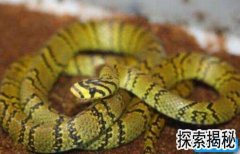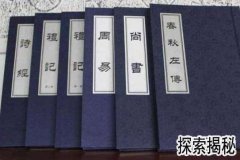(1)作状语:
①时间副词:一般放在句首或句尾,注意,early、late、before、later、yet等一般放在句尾,already、just一般放在动词的前面。如:wewillvisitthegreatwalltomorrow.(我们明天要去参观长城)/theyhavealreadybeentotheuktwice.(他们去过英王国两次)/soonthelostboyfoundhiswaybackhome.(不久迷路的孩子找到了回家的路)
②频度副词:一般放在be动词之后或者助动词与主要动词之间,但sometimes、often等还可以放在句首或句尾,usually可放在句首,once可放在句尾,twice、threetimes等一般放在句尾。如:sometimesigetupearly.(我有时起得早)/theworkersusuallyhavelunchatthefactory.(工人们通常在厂里吃午饭)/takethismedicinetwiceaday.(这种*一天吃两次)
③方式副词:一般放在行为动之后,suddenly可以放在句首、句尾或动词之前。如:oldpeoplecanhardlywalkasquicklyasyoungpeople.(老年人几乎不可能走得和年轻人一样快)/suddenlyhesawalightinthedarkcave(山洞).(突然,在黑黢黢的山洞里,他看见了一丝亮光)
④地点副词:一般放在句尾,但here、there还可放在句首。如:thereyoucanseethousandsofbikesrunninginalldirections(方向).(在那里,你可以看到成千上万的自行车朝各个方向流动)/thefrightenedwolfranaway.(受到惊吓的狼逃开了)/hewalkedoutquietlyandturnedbacksoon.(他悄悄地走了出去,很快又返回)
⑤程度副词:修饰动词时,放在动词之前;修饰形容词或副词时,放在形容词或副词之前。但注意,enough总是放在被修饰的形容词或动词的后面;only位置比较灵活,总是放在被修饰的词的前面。如:inearlyforgotallaboutitifhedidnottellmeagain.(如果他不再次告诉我,我几乎把那事全忘了)/itwassostrangethaticouldhardlybelievemyears.(它那么奇怪一直我都不能相信我的耳朵)/shegottothestationearlyenoughtocatchthefirstbus.(她早早地赶到车站赶上了首班车)
⑥疑问副词:用于对句子的状语进行提问,位置总是在句首。如:whenandwherewereyouborn?(你何时何地出生?)/whydidlittleedisonsitonsomeeggs?(小爱迪生为什么要坐在鸡蛋上?)/howdoyoudo?(你好!)
第2篇:婚庆中客人的位置安排以及祝贺词婚庆中客人的位置安排以及祝贺词
多批客人巧安排
多批客人来访,要注意热情礼貌,周到安排。一般情况下,后来的客人进门,主人应向先到的客人致歉,然后去迎接新客人,并把新客人介绍给早来的客人,再把早来的客人介绍给新客人,使他们彼此相识。
如两批客人都是有事而来,可视不同情况,采用不同方法接待。如两批客人关系很熟,且谈话的内容可以公开,主人可以将两批客人同时接待。如两批客人互不熟悉,各有不宜公开的事情要办,一般的顺序是先来先接待。但也有例外,如先来的客人常来常往,而后来的客人难得上门;或先来的客人无既定目的,而后来的客人有要事相商;或先来的客人是平级、下属,而后来的客人是长者、上级等等。在这种情况下,在征得先来客人的同意后,可与后来的客人先谈,但要安排好先来的客人。
如两批客人主要拜访的是家里的不同成员,则可由更熟悉客人的家庭成员分两个房间分别进行接待,以免相互干扰。
婚礼用曲大全
婚礼前:
1.tchaikovsky:thenutcrackersuiteovertuvemarch柴可夫斯基:胡桃夹子组曲、序曲、进行曲
2.claicewithachaserthemefromtchaikovskyianoconcertono1toninghtwelove柴可夫斯基第一号钢琴协奏曲第一乐章
3.bestofnatkingcolevol.2aroundtheworld环游世界
4.kreisler:scbonrosmarin克雷斯勒:美丽的罗斯玛琳
5.lehar:vilta’ong雷哈儿:薇丽亚之歌
婚礼中:
一.奏乐
1.韩德尔:皇家*火组曲“欢喜”
2.李泰祥:“蜕变”旋律之一“凤凰于飞”
二.*婚人、介绍人就位beethoven:towmilltarymarches
三.伴郎、伴娘、新郎、新娘等进场华格纳:婚礼大合唱
四.婚礼巴哈:清唱147,耶稣,人类希望的喜悦
五.致词:1.笛之随想2.新疆之花
六.礼成奏乐韩德尔:皇家*火组曲“第二小步舞曲”
七.退场孟德尔颂:仲夏夜之梦“婚礼进行曲”
婚嫁祝词
婚嫁祝词,古来丰富。根据被祝对象,归纳甄别,大体两类:一是对于新郎新娘,一是对于新人父母。
对新人的祝词,按期断分,可分婚礼前、婚礼日两种。
婚礼前,对于新人的祝词可用:志同道合、喜结良缘、百年好合、珠联壁合、比翼高飞、连枝相依、心心相印、同心永结、爱海无际、情天万里、永浴爱河、恩意如岳、知音百年、爱心永恒、白首偕老、天长地久;
婚礼日,对新人的祝词可用:恭贺新婚、婚礼吉祥、新婚大禧、结婚嘉庆、新婚快乐、龙凤呈祥、喜结伉俪、佳偶天成、琴瑟和鸣、鸳鸯福禄、丝萝春秋、花好月圆、并蒂荣华、幸福美满、吉日良辰;
对新人的父母所用祝词也各有差别的,对新郎父母的祝词有:令郎婚禧、家璧生辉、恭贺字婚、祝福早孙、贺子纳媳、增祺添丁;对新娘的父母所用祝词有:令爱婚禧、福得佳婿、恭贺女嫁、于归志喜;
对双方父母共贺祝词有::恭贺秦晋、贺继朱陈、联姻嘉庆、结亲兼福
第3篇:形容词在句子中的作用形容词在句子中的作用
1。 形容词在句子中主要用作:
1)定语:
shanghai is a big industrial city。 上海是一座大工业城市。
we lived in a beautiful village。 我们住在一座美丽的村子里。
2)表语:
we could see that she was very handsome。 我们可以看出她非常英俊。
don`t feel bad。 everything will be all right。 不要难过,一切都会好的。
3)宾语补语(构成复合宾语):
we found him asleep on the sofa。 我们发现他在双人沙发上睡着了。
who left the door open? 谁让大门敞开着?
4)状语:
they came over, eager to help。 他们跑了过来,亟于帮忙。
afraid of the hardships, they stopped half-way。 由于害怕困难,他们中途停了下来。
2。 间或用作同位语(a)或*成分(b):
a。 he read all kinds of books, ancient and modern, chinese and foreign。 他看了各式各样的书,古今中外都有。
b。 strange to say, he did pass the exam after all。 说也奇怪,他考试竟然及格了。
3。 大多数形容词,既可作定语,也可作表语,但有少数形容词通常只作表语,如:afraid, aloud, alike, alert, alive, aware, ashamed, unable。
有个别形容词通常作表语,间或作定语(常有特别意思),如:
she is fond of children。 她喜欢孩子。
i have very fond memories of my time in spain。 对我在西班牙的岁月,我有亲切的回忆。 exercises:
i。 在下面句子中的形容词下划线,说明它们的作用:
1。 she had a beautiful voice。 ( )
2。 the baby is five months old。 ( )
3。 i felt glad that my sister was well again。 ( )( )
4。 your nephew is a nice little boy。 ( )( )
5。 we found it hard to make a living。 ( )
6。 the entire city turned out for the celebration。 ( )
7。 she looked white and frightened。 ( )( )
8。 this made me very sad。 ( )
9。 sure enough, they came to see us。 ( )
10。 much interested, he agreed to give it a try。 ( )
11。 he said nothing, but sat silent smoking。 ( )
12。 of the 20 people present, i know only one。 ( )
ii。 在下面短文中的形容词下划线,并说明它们的作用:
on a cold, frosty day, the ants began drying the grain they had stored during the summer。 a grasshopper, half-dead with hunger came by and asked the diligent ants for a morsel to save his life。
[what did you do this past summer?" responded the ants。
[oh," said the hungry grasshopper。 [i kept myself busy by singing all day long and all night, too。"
[we`ll then," remarked the ants as they laughed and shut the store house, [since you kept yourself busy by singing all summer, you can do the same by dancing all winter。"
- adapted from aesop`s fables





